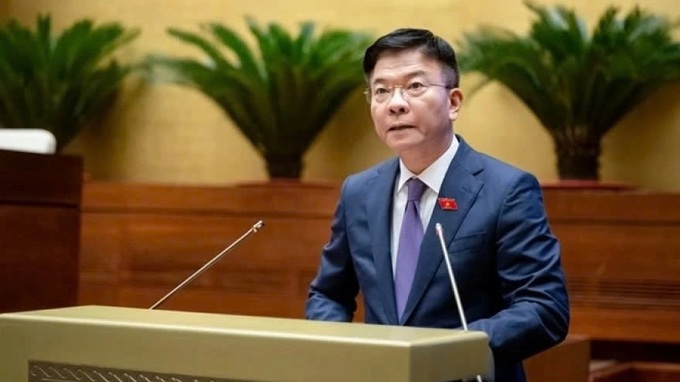
Deputy Prime Minister Le Thanh Long presents a Government proposal on the national target program on drug prevention and control till 2030 worth VND22.5 trillion at the ongoing session of the National Assembly in Hanoi
This program aims to strengthen measures to combat drug-related issues, including prevention, treatment, rehabilitation, and enforcement efforts. The proposed funding will support initiatives to help reduce drug supply and demand, enhance public awareness, improve rehabilitation services, and boost law enforcement capabilities to address drug - related problems effectively across the country.
Presenting the government’s report on November 8, Deputy Prime Minister Le Thanh Long pointed out that that the drug situation is becoming increasingly complex and severe regionally and globally, directly impacting Vietnam and raising risks and pressures on drug prevention and control efforts.
Domestically, he said the drug situation remains highly unpredictable, with the number of cases, individuals involved, and drug-related seizures showing a rising trend each year.
The number of drug addicts and illicit drug users remains alarmingly high, spanning all demographics, age groups, and regions. Drug-related issues affect a vast majority of localities nationwide, with 83.7% of communes, wards, and townships reporting drug-related problems.
To address these challenges, the National Target Program for Drug Prevention and Control up to 2030 has been formulated to increase preventive awareness, combat drug-related crimes, and provide drug addiction treatment, as well as to manage drug addicts, illicit drug users, and post-rehabilitation cases.
The program outlines three specific goals - reducing supply, reducing demand, and reducing harm, along with 20 specific targets. Among these, it aims to increase the annual detection and arrest rate of drug-related offenses at borders, coastal areas, airports, and through express delivery, as well as cross-border organized drug crime cases by over 3% each year.
Each year, the program seeks to limit the growth rate of drug addiction to under 1% and the rate of new illicit drug users to below 1%. It aims for at least 80% of drug addicts to receive addiction counseling and 90% of post-rehabilitation individuals to receive support to prevent relapse and reintegrate into society.
A key target is for 100% of public drug rehabilitation centers to meet required standards for facilities and equipment. By 2028, the program will support and upgrade facilities in 2,000 communes, wards, and townships with drug addicts, ensuring they have adequate infrastructure and equipment to accommodate addiction treatment and counseling.
After examining the proposal, the Social Affairs Committee of the National Assembly unanimously agreed on the necessity of presenting the program to the National Assembly for approval. However, It noted that many of the proposed targets are quite ambitious, while the allocated state budget for the program is relatively limited, falling significantly short compared to other national target programs.
Therefore, the Social Affairs Committee recommended that the government continue to assess and review the targets and indicators to ensure they are aligned with the core tasks of the program and the availability of investment funds for project implementation.
